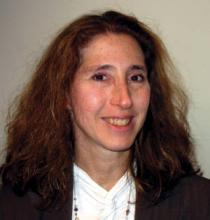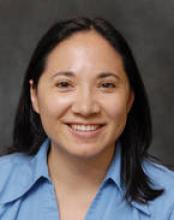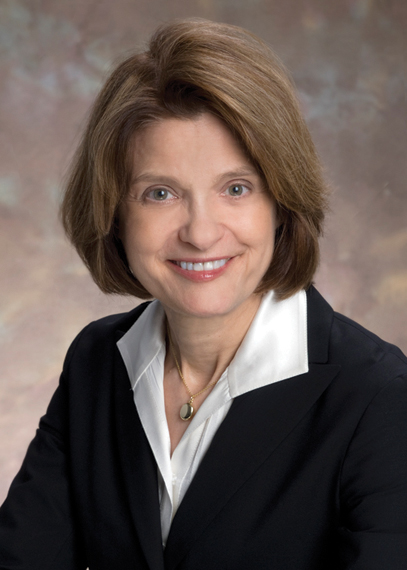User login
Dr. Phillips and colleagues have identified yet another issue that may add to the complexity of surgical training, i.e., pregnancy. Both surgical training and having children are time-sensitive priorities that may conflict with one another and add extra stress to the decision matrix. There is no perfect answer here. So, even after the decision is made to have a child, there will still be many other conflicts coming down the pike.
The key to managing such issues is to realize the following: Be flexible. You can "do it all" but not all at once. You have a whole lifetime to accomplish goals and from time to time, adjustments in plans have to be made: You lead life, it does not lead you. There is no "yellow brick road." This is where surgeons excel. They exhibit strength and courage when facing such conflicts and recognize that they have the skills and stamina to move their lives forward even in the face of complex challenges.
Grace Rozycki, MD, FACS, is the Willis D. Gatch Professor of Surgery and executive vice chair of the department of surgery, Indiana University, Indianapolis.
It would be interesting to compare female surgeons with other professional women of the same age and generation. Many of my friends from high school and college are not physicians, and they are very accomplished in their chosen fields. Many of these women did not identify a life partner until well into their 30s. I think that getting married and having children in the 30- or even 40-year-old age groups reflects a generational trend, partially, but not entirely, attributable to devoting oneself to a career. In addition, many of my group of friends, including myself, married men who had children from previous marriages. Having an "instant" family may further delay or may encourage childbearing. As expected, several of my friends of advanced maternal age experienced complications in their pregnancies and attempted assisted reproduction. Because I was over 40 years old when my husband and I decided to try to get pregnant, I planned to discuss my fertility with my gynecologist, and we were very blessed to discover that we were already pregnant by the time that appointment was scheduled.
As others have said, there is not a perfect time to have a child. The responsibilities and stresses don’t really get better or worse with career progression; they just change. I think it is the responsibility of all professional women with families to support other women in having families, if that is something they choose to do. This effort involves helping one another and making the workplace family friendly. I don’t schedule my conference calls or research team meetings at times that folks might be picking up their children at school or having dinner with their families. I recently convinced our business manager to get an extra refrigerator in a private room for a nurse practitioner who is returning from maternity leave, wants to breast feed, and will need to pump. The American College of Surgeons has offered all-day child care at their meetings for years, and the Society for American Gastrointestinal and Endoscopic Surgeons (SAGES) has recently followed suit. With such support, I have taken my toddler with me to nearly all my professional meetings during the first 3 years of her life, and I don’t hide the fact that being a wife and mother are priorities for me. These new roles have not significantly compromised my career. In fact, they’ve helped me to focus and set priorities. Since the birth of my child, I have been asked to serve in an institutional leadership role as research director for our patient portal, and my first R01 grant proposal was submitted and successfully funded.
Gretchen Purcell Jackson, M.D, Ph.D., FACS, is assistant professor of surgery, pediatrics, and biomedical informatics, Vanderbilt University, Nashville, Tenn.
The issues of childbearing and fertility are complex for women surgeons. It was not clear from the presentation whether the respondents were all in practice. If the respondents are all primarily from the baby-boomer generation, it may alter the survey results. It would be interesting to see the response of current women surgery trainees and to determine whether this is really more of a generational issue or whether the issues relate to the surgical lifestyle.
Certainly, the knowledge of fertility options, financial stability, and ease of access to specialists may also encourage women surgeons to seek intervention at a higher rate than that of the general population.
There is never a perfect time to have children, but there are certainly times that are not ideal. I am married, and have three children, ages 8, 13, and 18 years. I had no difficulties with any of my pregnancies. I had my first child at the completion of my fellowship, and the other two while in academic practice. I worked up until the day I went into labor during training, and up until 2 weeks prior to my due date when I was in practice. I did modify my surgical schedule to avoid long or complex cases during my last months when I was in practice, whereas, this was not necessary during my training. I was fortunate to have partners who were accommodating.
Comparing surgeons to other professionals from the same generation would give better information as to whether the field itself is the issue, or whether this is more of a generational issue for professionals. Many of my friends both in medical and nonmedical professional fields also waited until early 30s to get married and have children, while others chose not to have any children to prioritize their careers. When I was in training, there were many places in which overt prejudice against women still existed. It was difficult enough to be "equal" to your male colleagues without having to deal with concerns of dumping work on them because of a pregnancy or the potential reaction from your chair or program director. Luckily, not all programs were like that. It was also commonplace to work upward of 100 hours per week.
Finding time for relationships, surviving a pregnancy, surviving a surgical residency, and not putting a pregnancy at risk was more difficult under those conditions.
Times continue to change, and pregnancy during training is becoming more common, especially in larger surgery programs. The acknowledgment that not only women, but also men of the younger generation are not willing to work to the exclusion of family, and outside life is changing the field, as is the fact that 50% of graduating medical students are women.
The ability to have children during training has also been facilitated by the duty hour rules, as well as by having more women faculty. We need to continue to examine ways to encourage the work-life blend in surgical fields, not only for women, but for men as well, or risk losing a large section of the class to "lifestyle fields." Having resources within the institutions such as child care, with hours compatible with working resident schedules would go a long way toward facilitating this blend. The finding that women surgeons availed themselves of fertility specialists more frequently than the general population did is not necessarily a concern. The question is whether the rate of infertility in women surgeons is truly significantly higher than that of their peers in other professional areas. The main issues to address remain how to facilitate childbearing for those women surgeons who wish to have a family, and how to facilitate the work-life blend for ourselves and all of our trainees.
Linda Harris, M.D., FACS, is division chief, vascular surgery, State University of New York at Buffalo.
The decisions about childbearing that women surgeons make are in many ways similar to those of other career-oriented women, as Dr. Harris points out. The dilemmas involved in this area are perhaps more extreme in the field of surgery, compared with other professions because to the pressures and length of training that are associated with surgery. It is a topic that deserves more attention, since from a very general perspective, it is difficult for a trainee to project out the implications of his or her choices in creating a family or having children 5 or more years beyond training. Decisions around childbearing are also complex, nuanced, highly personal, and variable to each person’s life experience. I had one child during my residency and another during my practice, which in each case had its own advantages and challenges. In my case, the most important factor to making it work as well as it has was having a very supportive spouse.
Genevieve Melton-Meaux, M.D., FACS, is an associate professor of surgery, University of Minnesota, Minneapolis.
As a medical student applying into a surgical subspecialty, I am sobered but certainly not surprised by these findings. I approach my career and desire for a family with wary readiness to face a lifetime of setting tough priorities that at times may feel isolating. Is a career as a surgeon incompatible with pregnancy, lasting marriage, and well-behaved children? I would say no, though it depends on who your partner is, where you work, and careful timing. With increasing numbers of females entering surgery who refuse to compromise mothering their own children, the work environment will have to change. Part of this changing landscape may mean that female surgeons will undergo assisted reproductive technologies at higher rates than their non-surgeon counterparts. It may mean that shift work becomes more acceptable. Regardless, the changes we create as a medical community should affect both men and women; we should be wary of designing special tracks or programs that can lend to further isolation and hand-waving of leadership. To ensure gender equity in surgery we are asking for institutional change – something for which there is never a perfect or easy time. Surgeons simply have to make it a priority.
Charlotte R. Gamble is a fourth year medical student at the University of Michigan, Ann Arbor
Dr. Phillips and colleagues have identified yet another issue that may add to the complexity of surgical training, i.e., pregnancy. Both surgical training and having children are time-sensitive priorities that may conflict with one another and add extra stress to the decision matrix. There is no perfect answer here. So, even after the decision is made to have a child, there will still be many other conflicts coming down the pike.
The key to managing such issues is to realize the following: Be flexible. You can "do it all" but not all at once. You have a whole lifetime to accomplish goals and from time to time, adjustments in plans have to be made: You lead life, it does not lead you. There is no "yellow brick road." This is where surgeons excel. They exhibit strength and courage when facing such conflicts and recognize that they have the skills and stamina to move their lives forward even in the face of complex challenges.
Grace Rozycki, MD, FACS, is the Willis D. Gatch Professor of Surgery and executive vice chair of the department of surgery, Indiana University, Indianapolis.
It would be interesting to compare female surgeons with other professional women of the same age and generation. Many of my friends from high school and college are not physicians, and they are very accomplished in their chosen fields. Many of these women did not identify a life partner until well into their 30s. I think that getting married and having children in the 30- or even 40-year-old age groups reflects a generational trend, partially, but not entirely, attributable to devoting oneself to a career. In addition, many of my group of friends, including myself, married men who had children from previous marriages. Having an "instant" family may further delay or may encourage childbearing. As expected, several of my friends of advanced maternal age experienced complications in their pregnancies and attempted assisted reproduction. Because I was over 40 years old when my husband and I decided to try to get pregnant, I planned to discuss my fertility with my gynecologist, and we were very blessed to discover that we were already pregnant by the time that appointment was scheduled.
As others have said, there is not a perfect time to have a child. The responsibilities and stresses don’t really get better or worse with career progression; they just change. I think it is the responsibility of all professional women with families to support other women in having families, if that is something they choose to do. This effort involves helping one another and making the workplace family friendly. I don’t schedule my conference calls or research team meetings at times that folks might be picking up their children at school or having dinner with their families. I recently convinced our business manager to get an extra refrigerator in a private room for a nurse practitioner who is returning from maternity leave, wants to breast feed, and will need to pump. The American College of Surgeons has offered all-day child care at their meetings for years, and the Society for American Gastrointestinal and Endoscopic Surgeons (SAGES) has recently followed suit. With such support, I have taken my toddler with me to nearly all my professional meetings during the first 3 years of her life, and I don’t hide the fact that being a wife and mother are priorities for me. These new roles have not significantly compromised my career. In fact, they’ve helped me to focus and set priorities. Since the birth of my child, I have been asked to serve in an institutional leadership role as research director for our patient portal, and my first R01 grant proposal was submitted and successfully funded.
Gretchen Purcell Jackson, M.D, Ph.D., FACS, is assistant professor of surgery, pediatrics, and biomedical informatics, Vanderbilt University, Nashville, Tenn.
The issues of childbearing and fertility are complex for women surgeons. It was not clear from the presentation whether the respondents were all in practice. If the respondents are all primarily from the baby-boomer generation, it may alter the survey results. It would be interesting to see the response of current women surgery trainees and to determine whether this is really more of a generational issue or whether the issues relate to the surgical lifestyle.
Certainly, the knowledge of fertility options, financial stability, and ease of access to specialists may also encourage women surgeons to seek intervention at a higher rate than that of the general population.
There is never a perfect time to have children, but there are certainly times that are not ideal. I am married, and have three children, ages 8, 13, and 18 years. I had no difficulties with any of my pregnancies. I had my first child at the completion of my fellowship, and the other two while in academic practice. I worked up until the day I went into labor during training, and up until 2 weeks prior to my due date when I was in practice. I did modify my surgical schedule to avoid long or complex cases during my last months when I was in practice, whereas, this was not necessary during my training. I was fortunate to have partners who were accommodating.
Comparing surgeons to other professionals from the same generation would give better information as to whether the field itself is the issue, or whether this is more of a generational issue for professionals. Many of my friends both in medical and nonmedical professional fields also waited until early 30s to get married and have children, while others chose not to have any children to prioritize their careers. When I was in training, there were many places in which overt prejudice against women still existed. It was difficult enough to be "equal" to your male colleagues without having to deal with concerns of dumping work on them because of a pregnancy or the potential reaction from your chair or program director. Luckily, not all programs were like that. It was also commonplace to work upward of 100 hours per week.
Finding time for relationships, surviving a pregnancy, surviving a surgical residency, and not putting a pregnancy at risk was more difficult under those conditions.
Times continue to change, and pregnancy during training is becoming more common, especially in larger surgery programs. The acknowledgment that not only women, but also men of the younger generation are not willing to work to the exclusion of family, and outside life is changing the field, as is the fact that 50% of graduating medical students are women.
The ability to have children during training has also been facilitated by the duty hour rules, as well as by having more women faculty. We need to continue to examine ways to encourage the work-life blend in surgical fields, not only for women, but for men as well, or risk losing a large section of the class to "lifestyle fields." Having resources within the institutions such as child care, with hours compatible with working resident schedules would go a long way toward facilitating this blend. The finding that women surgeons availed themselves of fertility specialists more frequently than the general population did is not necessarily a concern. The question is whether the rate of infertility in women surgeons is truly significantly higher than that of their peers in other professional areas. The main issues to address remain how to facilitate childbearing for those women surgeons who wish to have a family, and how to facilitate the work-life blend for ourselves and all of our trainees.
Linda Harris, M.D., FACS, is division chief, vascular surgery, State University of New York at Buffalo.
The decisions about childbearing that women surgeons make are in many ways similar to those of other career-oriented women, as Dr. Harris points out. The dilemmas involved in this area are perhaps more extreme in the field of surgery, compared with other professions because to the pressures and length of training that are associated with surgery. It is a topic that deserves more attention, since from a very general perspective, it is difficult for a trainee to project out the implications of his or her choices in creating a family or having children 5 or more years beyond training. Decisions around childbearing are also complex, nuanced, highly personal, and variable to each person’s life experience. I had one child during my residency and another during my practice, which in each case had its own advantages and challenges. In my case, the most important factor to making it work as well as it has was having a very supportive spouse.
Genevieve Melton-Meaux, M.D., FACS, is an associate professor of surgery, University of Minnesota, Minneapolis.
As a medical student applying into a surgical subspecialty, I am sobered but certainly not surprised by these findings. I approach my career and desire for a family with wary readiness to face a lifetime of setting tough priorities that at times may feel isolating. Is a career as a surgeon incompatible with pregnancy, lasting marriage, and well-behaved children? I would say no, though it depends on who your partner is, where you work, and careful timing. With increasing numbers of females entering surgery who refuse to compromise mothering their own children, the work environment will have to change. Part of this changing landscape may mean that female surgeons will undergo assisted reproductive technologies at higher rates than their non-surgeon counterparts. It may mean that shift work becomes more acceptable. Regardless, the changes we create as a medical community should affect both men and women; we should be wary of designing special tracks or programs that can lend to further isolation and hand-waving of leadership. To ensure gender equity in surgery we are asking for institutional change – something for which there is never a perfect or easy time. Surgeons simply have to make it a priority.
Charlotte R. Gamble is a fourth year medical student at the University of Michigan, Ann Arbor
Dr. Phillips and colleagues have identified yet another issue that may add to the complexity of surgical training, i.e., pregnancy. Both surgical training and having children are time-sensitive priorities that may conflict with one another and add extra stress to the decision matrix. There is no perfect answer here. So, even after the decision is made to have a child, there will still be many other conflicts coming down the pike.
The key to managing such issues is to realize the following: Be flexible. You can "do it all" but not all at once. You have a whole lifetime to accomplish goals and from time to time, adjustments in plans have to be made: You lead life, it does not lead you. There is no "yellow brick road." This is where surgeons excel. They exhibit strength and courage when facing such conflicts and recognize that they have the skills and stamina to move their lives forward even in the face of complex challenges.
Grace Rozycki, MD, FACS, is the Willis D. Gatch Professor of Surgery and executive vice chair of the department of surgery, Indiana University, Indianapolis.
It would be interesting to compare female surgeons with other professional women of the same age and generation. Many of my friends from high school and college are not physicians, and they are very accomplished in their chosen fields. Many of these women did not identify a life partner until well into their 30s. I think that getting married and having children in the 30- or even 40-year-old age groups reflects a generational trend, partially, but not entirely, attributable to devoting oneself to a career. In addition, many of my group of friends, including myself, married men who had children from previous marriages. Having an "instant" family may further delay or may encourage childbearing. As expected, several of my friends of advanced maternal age experienced complications in their pregnancies and attempted assisted reproduction. Because I was over 40 years old when my husband and I decided to try to get pregnant, I planned to discuss my fertility with my gynecologist, and we were very blessed to discover that we were already pregnant by the time that appointment was scheduled.
As others have said, there is not a perfect time to have a child. The responsibilities and stresses don’t really get better or worse with career progression; they just change. I think it is the responsibility of all professional women with families to support other women in having families, if that is something they choose to do. This effort involves helping one another and making the workplace family friendly. I don’t schedule my conference calls or research team meetings at times that folks might be picking up their children at school or having dinner with their families. I recently convinced our business manager to get an extra refrigerator in a private room for a nurse practitioner who is returning from maternity leave, wants to breast feed, and will need to pump. The American College of Surgeons has offered all-day child care at their meetings for years, and the Society for American Gastrointestinal and Endoscopic Surgeons (SAGES) has recently followed suit. With such support, I have taken my toddler with me to nearly all my professional meetings during the first 3 years of her life, and I don’t hide the fact that being a wife and mother are priorities for me. These new roles have not significantly compromised my career. In fact, they’ve helped me to focus and set priorities. Since the birth of my child, I have been asked to serve in an institutional leadership role as research director for our patient portal, and my first R01 grant proposal was submitted and successfully funded.
Gretchen Purcell Jackson, M.D, Ph.D., FACS, is assistant professor of surgery, pediatrics, and biomedical informatics, Vanderbilt University, Nashville, Tenn.
The issues of childbearing and fertility are complex for women surgeons. It was not clear from the presentation whether the respondents were all in practice. If the respondents are all primarily from the baby-boomer generation, it may alter the survey results. It would be interesting to see the response of current women surgery trainees and to determine whether this is really more of a generational issue or whether the issues relate to the surgical lifestyle.
Certainly, the knowledge of fertility options, financial stability, and ease of access to specialists may also encourage women surgeons to seek intervention at a higher rate than that of the general population.
There is never a perfect time to have children, but there are certainly times that are not ideal. I am married, and have three children, ages 8, 13, and 18 years. I had no difficulties with any of my pregnancies. I had my first child at the completion of my fellowship, and the other two while in academic practice. I worked up until the day I went into labor during training, and up until 2 weeks prior to my due date when I was in practice. I did modify my surgical schedule to avoid long or complex cases during my last months when I was in practice, whereas, this was not necessary during my training. I was fortunate to have partners who were accommodating.
Comparing surgeons to other professionals from the same generation would give better information as to whether the field itself is the issue, or whether this is more of a generational issue for professionals. Many of my friends both in medical and nonmedical professional fields also waited until early 30s to get married and have children, while others chose not to have any children to prioritize their careers. When I was in training, there were many places in which overt prejudice against women still existed. It was difficult enough to be "equal" to your male colleagues without having to deal with concerns of dumping work on them because of a pregnancy or the potential reaction from your chair or program director. Luckily, not all programs were like that. It was also commonplace to work upward of 100 hours per week.
Finding time for relationships, surviving a pregnancy, surviving a surgical residency, and not putting a pregnancy at risk was more difficult under those conditions.
Times continue to change, and pregnancy during training is becoming more common, especially in larger surgery programs. The acknowledgment that not only women, but also men of the younger generation are not willing to work to the exclusion of family, and outside life is changing the field, as is the fact that 50% of graduating medical students are women.
The ability to have children during training has also been facilitated by the duty hour rules, as well as by having more women faculty. We need to continue to examine ways to encourage the work-life blend in surgical fields, not only for women, but for men as well, or risk losing a large section of the class to "lifestyle fields." Having resources within the institutions such as child care, with hours compatible with working resident schedules would go a long way toward facilitating this blend. The finding that women surgeons availed themselves of fertility specialists more frequently than the general population did is not necessarily a concern. The question is whether the rate of infertility in women surgeons is truly significantly higher than that of their peers in other professional areas. The main issues to address remain how to facilitate childbearing for those women surgeons who wish to have a family, and how to facilitate the work-life blend for ourselves and all of our trainees.
Linda Harris, M.D., FACS, is division chief, vascular surgery, State University of New York at Buffalo.
The decisions about childbearing that women surgeons make are in many ways similar to those of other career-oriented women, as Dr. Harris points out. The dilemmas involved in this area are perhaps more extreme in the field of surgery, compared with other professions because to the pressures and length of training that are associated with surgery. It is a topic that deserves more attention, since from a very general perspective, it is difficult for a trainee to project out the implications of his or her choices in creating a family or having children 5 or more years beyond training. Decisions around childbearing are also complex, nuanced, highly personal, and variable to each person’s life experience. I had one child during my residency and another during my practice, which in each case had its own advantages and challenges. In my case, the most important factor to making it work as well as it has was having a very supportive spouse.
Genevieve Melton-Meaux, M.D., FACS, is an associate professor of surgery, University of Minnesota, Minneapolis.
As a medical student applying into a surgical subspecialty, I am sobered but certainly not surprised by these findings. I approach my career and desire for a family with wary readiness to face a lifetime of setting tough priorities that at times may feel isolating. Is a career as a surgeon incompatible with pregnancy, lasting marriage, and well-behaved children? I would say no, though it depends on who your partner is, where you work, and careful timing. With increasing numbers of females entering surgery who refuse to compromise mothering their own children, the work environment will have to change. Part of this changing landscape may mean that female surgeons will undergo assisted reproductive technologies at higher rates than their non-surgeon counterparts. It may mean that shift work becomes more acceptable. Regardless, the changes we create as a medical community should affect both men and women; we should be wary of designing special tracks or programs that can lend to further isolation and hand-waving of leadership. To ensure gender equity in surgery we are asking for institutional change – something for which there is never a perfect or easy time. Surgeons simply have to make it a priority.
Charlotte R. Gamble is a fourth year medical student at the University of Michigan, Ann Arbor





